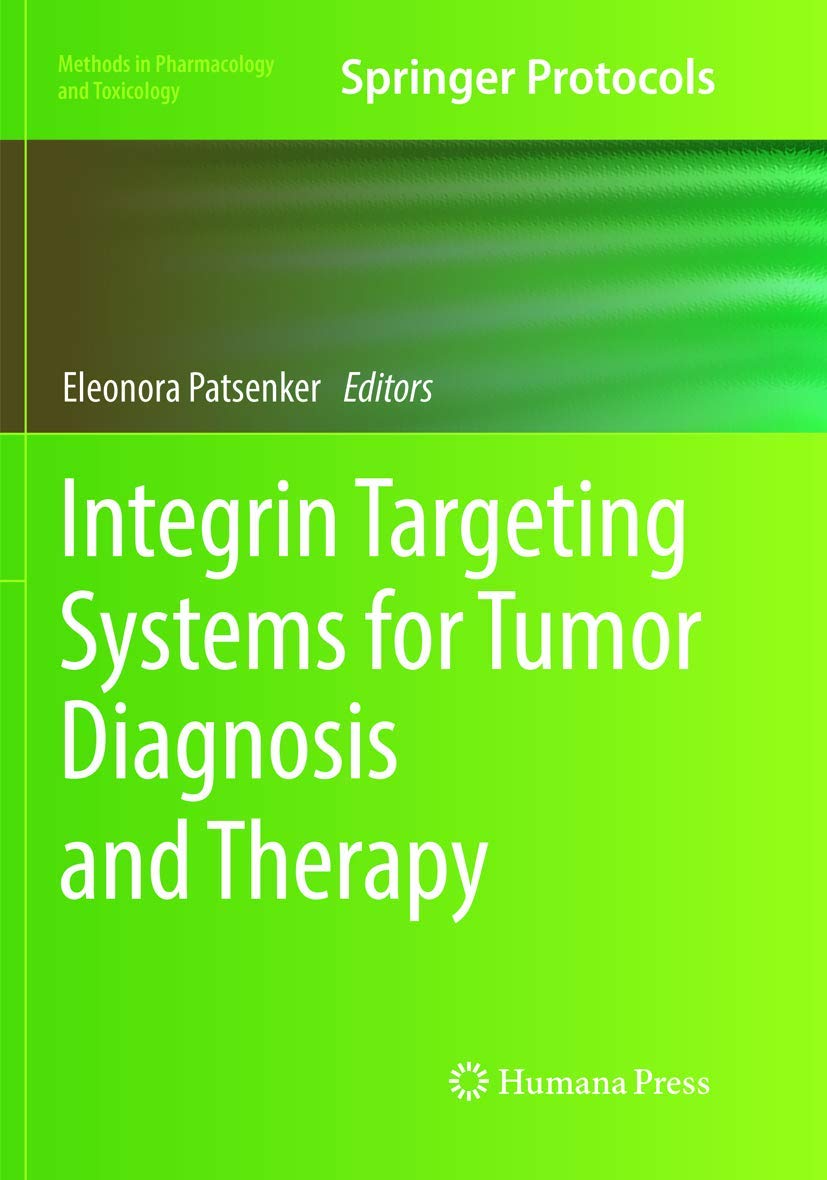Integrin Targeting Systems for Tumor Diagnosis and Therapy (Methods in Pharmacology and Toxicology)
Integrin Targeting Systems for Tumor Diagnosis and Therapy (Methods in Pharmacology and Toxicology) is backordered and will ship as soon as it is back in stock.
Couldn't load pickup availability
Genuine Products Guarantee
Genuine Products Guarantee
We guarantee 100% genuine products, and if proven otherwise, we will compensate you with 10 times the product's cost.
Delivery and Shipping
Delivery and Shipping
Products are generally ready for dispatch within 1 day and typically reach you in 3 to 5 days.
Book Details:
-
Publisher: Springer
-
Author: Eleonora Patsenker
-
Language: English
-
Edition: Softcover reprint of the original 1st Edition (2018)
-
ISBN: 9781493992478
-
Pages: 226
-
Cover: Paperback
-
Dimensions: 10.0 x 7.0 x 0.6 inches
About the Book:
Integrin Targeting Systems for Tumor Diagnosis and Therapy by Eleonora Patsenker is an invaluable resource for researchers and professionals working in the field of cancer biology and pharmacology. This volume compiles a wide array of techniques and methodologies that have been developed to facilitate integrin biology research, focusing particularly on their role as biomarkers and therapeutic targets in cancer treatment. The book explores integrin targeting systems as key tools for diagnosing and treating various cancers and offers insights into their application for multiple organ diseases.
The chapters provide in-depth coverage of structural analysis techniques, as well as methods for identifying and detecting integrins. They also detail laboratory and clinical procedures related to the generation, synthesis, and evaluation of probes, carriers, peptides, and small particles that can be used for integrin targeting, imaging, and drug delivery. As part of the Methods in Pharmacology and Toxicology series, the book is packed with practical, step-by-step details that are essential for laboratory work.
This book serves as a comprehensive overview of current developments in integrin-related technologies for cancer research, offering guidance for both newcomers in the field and experienced professionals. It will be particularly useful to researchers, students, and clinicians seeking to expand their knowledge of integrin targeting systems and how they can be applied to cancer diagnosis and therapy.





